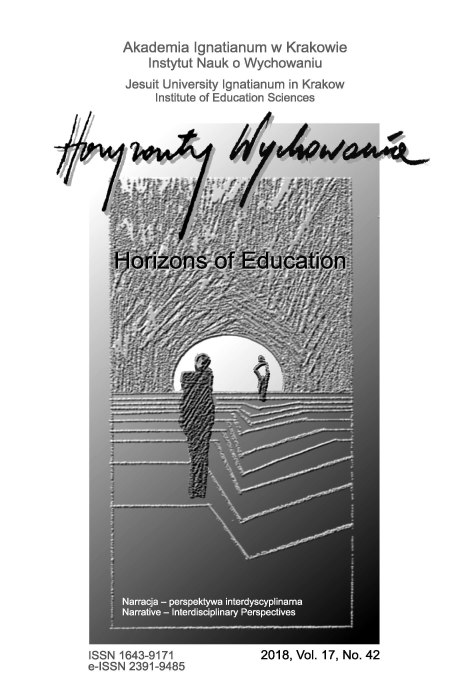Narracja źródłem wiedzy w pedagogice
Narrative as a Source of Knowledge in Pedagogy
Author(s): Janusz Mółka, Miłosz MółkaSubject(s): Education, Theory of Literature
Published by: Uniwersytet Ignatianum w Krakowie
Keywords: qualitative research; narration; discursive pedagogy; narrative identity;
Summary/Abstract: RESEARCH OBJECTIVE: The aim of the article is to systematize knowledge about the narrative and to indicate its specificity and place in the context of qualitative research conducted on the basis of social sciences, especially pedagogy. THE RESEARCH PROBLEM AND METHODS: The problem of the article was related to the question of what narration is and what it might mean for pedagogical research. Looking for answer for this question – the problem of the article – appealed to a critical analysis of the literature of the subject, and then compared the collected results to attempt to sketch the scientific value of the narrative. THE PROCESS OF ARGUMENTATION: The analysis of the literature has based on the hermeneutical direction of the discussion: from defining the meaning of narrative in pedagogy by approximating one of its main categories, the so called “self identity,” to show the relationship between social pedagogy and discursive pedagogy. RESEARCH RESULTS: As a result of the analyzes, the scientific significance of narrative in qualitative research was reported. This significance its scientific legitimacy basic on the exploratory function, which focuses first and foremost on the explanations about the way the world is understood by the investigators (the authors of the narrative). Thus, it appreciating the view from humanistic perspective for the problems of the broadly understood educational reality. CONCLUSIONS, INNOVATIONS, AND RECOMMENDATIONS: Recently, narrative has become the subject of research in pedagogy. Despite this, there is a great interest in the narrative possibilities that can be found in pedagogical research. In the literature of the subject, it is emphasized that in addition to methodologically correct and well established narrative analyzes, there are cases of using them without proper reflection, which in consequence leads to a decrease in their value. In order to limit the potential risk in the form of simplify the potential resulting from the narrative reading of the educational reality, it is recommended that in the conducted pedagogical studies use transparent and scientifically recognized procedures. One of them may be, for example, a narrative interview method based on the assumptions developed by German sociologist Fritz Schütze or a structural analysis technique promoted in Poland by Zbigniew Marek and Anna Walulik. Both procedures are successfully used not only by the leading representatives of narrative research in Germany, but more and more often by native researchers.
Journal: Horyzonty Wychowania
- Issue Year: 17/2018
- Issue No: 42
- Page Range: 111-123
- Page Count: 13
- Language: Polish

